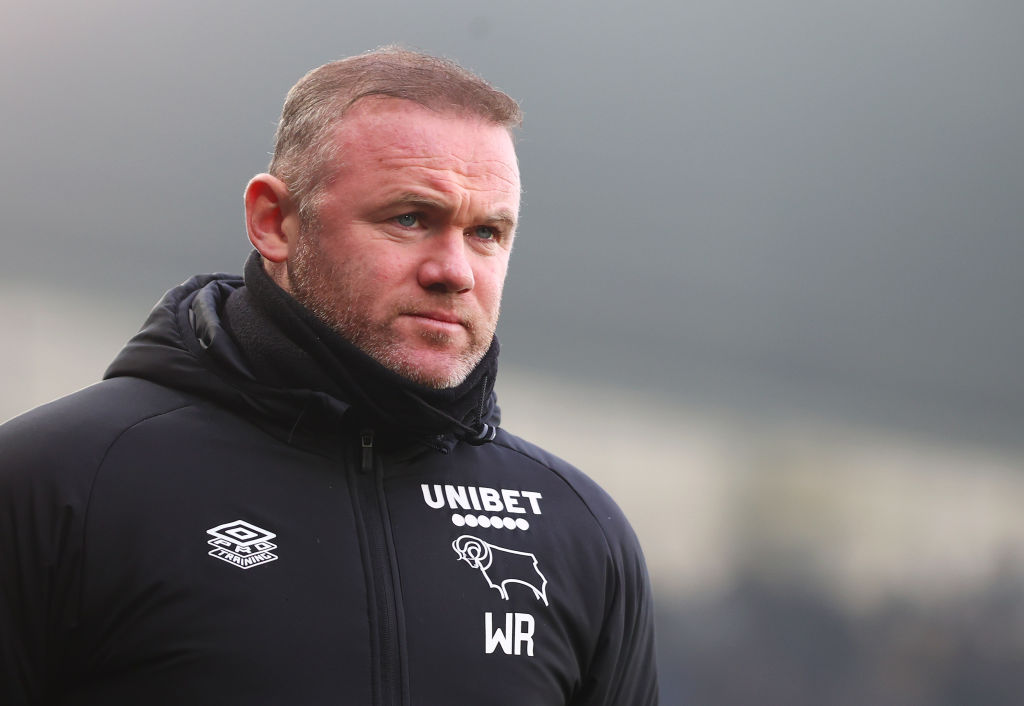How Derby County slipped to edge of disappearance

They are former English champions and in top form under the management of Wayne Rooney, yet day by day Derby County are inching towards liquidation and disappearing from football forever.
Their story is one of financial mismanagement in a desperate bid to achieve promotion to the Premier League; administrators scrambling to find a buyer – potentially retail tycoon and former Newcastle United owner Mike Ashley – to revive the fortunes of one of the game’s sleeping giants; rival clubs pushing them to the brink with claims for around £50m; and England hero Rooney rallying the players for an unlikely escape from relegation despite a 21-point penalty.
The Championship club’s plight even reached Parliament yesterday when MPs including former Foreign Minister Margaret Beckett called on the English Football League (EFL) to do more to prevent Derby becoming the by far the biggest club to go to the wall. Here is the state of play.
Why are Derby in danger?
Put simply, they have almost run out of time and money. Since entering administration in September, Derby have had to provide regular proof of funding to the EFL in order to retain their membership.
Cost savings and loans have got them this far, but the EFL does not believe they have enough money for the rest of the season. Despite this, and a 21-point penalty, Rooney has hauled Derby off the bottom of the table.
Why have fears grown this week?
The EFL confirmed on Tuesday that it had given Derby’s administrators Quantuma a deadline of 1 February to prove they have the funds. It reiterated the point on Thursday, has forbidden the club to register any new players and suggested that, if necessary, it sells some to generate cash.
At the same time, Middlesbrough and Wycombe Wanderers confirmed they are refusing to drop multi-million pound claims against Derby despite the club being on a knife-edge.
Why are Boro and Wycombe suing?
Both argue they have suffered because Derby broke the EFL’s financial rules.
Middlesbrough say it unfairly denied them a place in the play-offs – and a shot at the riches of the Premier League – in 2020. They want £40m-£45m.
Wycombe say Derby’s points penalty should have been applied last season, relegating them to League One instead. They want £5m-£6m.
The EFL says it is “exasperated” by Derby’s funding black hole but won’t intervene in the legal row.
“These claims aren’t going away unless Derby do a deal with them,” says Danny Davis, a partner at Mishcon de Reya.
“And they can’t because they’ve got no money. So they can only do a deal with the preferred bidder. That makes life pretty scary if you don’t know the bidder will complete.”
What are the possible solutions?
In the short term, administrators must find cash, either through player sales or from a preferred bidder.
The legal rows holding up a sale, meanwhile, can only be solved by the three clubs and a prospective Derby buyer thrashing out a settlement or by expediting an arbitration process to decide whether the claims have merit.
“The administrators are in a bind,” adds Davis. “If Derby can’t get Middlesbrough, Wycombe and the preferred bidder round the table to reach a negotiated outcome, the administrator has his hands tied behind his back. He’s begging the EFL to let them finish the season.”
What’s the most likely outcome?
Pressure is on the EFL to find a solution that prevents Derby going the way of Bury in 2019, including from Sports Minister Nigel Huddleston.
“I can’t for the life of me see the EFL being prepared to take the sort of flak to leave a big city like Derby without a football club,” says Davis.
“My instinct is that in 6-8 weeks we’ll see a deal has been reached – whether it’s Ashley or not – to pay these clubs an undisclosed sum and that’s the end of arbitration.”
